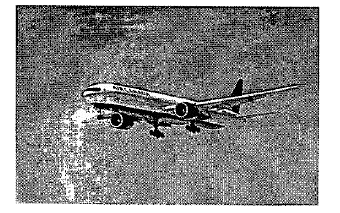Assertion: A natural number, when increased by 12, equals 160 times its reciprocal. The number is 20.
Reason: The roots of a quadratic equation ax2+bx+c=0 are given by the formula x=−b±√b2−4ac2a.
Both assertion and reason are correct and reason is the correct explanation of assertion.
Both assertion and reason are correct but reason is not the correct explanation of assertion.
Assertion is correct but reason is incorrect
Assertion is incorrect but reason is correct
The correct Answer is:D
Topper's Solved these Questions
- QUADRATIC EQUATIONSBook:ICSEChapter:QUADRATIC EQUATIONSExercise:Competency Based Questions
Explore 10 Videos
- QUADRATIC EQUATIONSBook:ICSEChapter:QUADRATIC EQUATIONSExercise:Fill in the blanks
Explore 6 Videos
- PROBABILITYBook:ICSEChapter:PROBABILITYExercise:EXERCISE 25(C)
Explore 106 Videos
- QUESTION PAPER 2019Book:ICSEChapter:QUESTION PAPER 2019Exercise:SECTION B
Explore 20 Videos
Similar Questions
An aeroplane travelled a distance of 400km at an average speed of x km/hr. On the return journey, the speed was increased by 40km/hr.

The expression for times taken for the onward journey is
View SolutionThe roots of −x2+12x+12=0 are .......and .......
View SolutionA bag contains 3 red balls, 4 blue balls and one yellow ball, all the balls being identical in shape and size. If a ball is taken out of the bag without looking into it, find the probability that the ball is :
(i) yellow
View SolutionThere are 25 disc numbered 1 to 25. They are put in a closed box and shaken throughly. A disc is drawn at random from the box.
Find the probability that the number on the disc is :
(i) an odd number
(ii) divisible by 2 and 3 both
(iii) a number less than 16.
View SolutionOne of the two real roots of the quadratic equation ax^(2)+bx+c=0 is three xx the other Then the value of b^(2)-4ac equals
View SolutionIn quadratic equation ax2+bx+c=0, if discriminant D=b2−4ac, then roots of quadratic equation are:
View SolutionTheorem : The roots of ax2+bx+c=0 are −b±√b2−4ac2a
View SolutionIf a,b,c are rational,if b2−4ac=0 then nature of the roots of the equation ax2+bx+c=0(a≠0)are
View SolutionIf the quadratic equation ax^(2)+bx+c=0 Prove that both the roots are equal b^(2)=4ac .
View Solutionयदि समीकरण ax2+bx+c=0 के मूल α,beta है तथा समीकरण Ax2+Bx+C=0 के मूल α-K ,β−K है तब B2−4ACb2−4acबराबर है
View SolutionIf the sum of the roots of the quadratic equation ax2+bx+c=0 is equal to the sum of the squares of their reciprocals,then prove that 2a2c=c2b+b2a.
View SolutionIf b2−4ac>0, then find the nature of roots of quadratic equations ax2+bx+c=0
View SolutionWhat is the nature of the roots of the quadratic equations ax2+bx+c=0 if :
b2−4ac=0
View SolutionWhat is the nature of the roots of the quadratic equations ax2+bx+c=0 if :
b2−4ac<0
View SolutionWrite the roots of quadratic equation ax2+bx+c=0 when b2−4ac>0.
View SolutionWrite the two roots of quadratic equation ax2+bx+c=0 when b2−4ac=0 is given.
View Solution
